
It is estimated that in 2021, at least 42% of the world’s population owned at least one social network account. This is a 3% increase from 39% in 2017. Going by this, it would not be a far stretch to say that the world literally runs on social media.
Author
Every day, we see more and more services being offered via social media platforms: from buying and selling of goods and services, money transfer, business marketing, news and much more. Social networks are no longer a place where people meet to share stories and catch up, they have grown to be more than that.
Apart from the usual platforms that would come to mind when the term social network is mentioned (Facebook, Instagram, twitter, LinkedIn, etc.), there are many more platforms that most people don’t even know exist. This article is going to shed some light on some of these huge but mostly unknown social network platforms. Please let us know if we’ve left any out in the comment section below.
1. WeChat
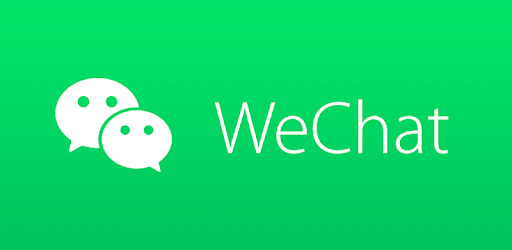
More popularly known as ‘Weixin’ in china and boasting over 1.1 billion users, WeChat is undoubtedly the most popular messaging platform in China. Over the years, the platform has grown to be much more than a simple social network.
Apart from making it possible for users to send instant messages and make voice and video calls, users can make purchases via WeChat Pay, advertise their brands in-app, partner with influencers (‘Key Opinion Leaders’ as WeChat calls them), and even sell products via the WeChat store.
If that was not enough, the app is partnering with the Chinese government to offer electronic ID to its users, allowing them to access government services with ease.
2. Sina Weibo
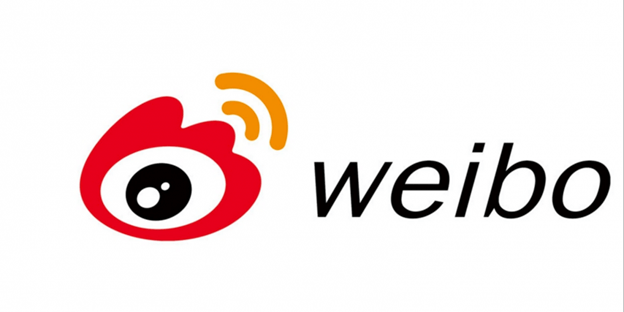
Sina Weibo is a personal microblogging app in China with over 445 million monthly active users. It is simply referred to as ‘Weibo’ which loosely translates to ‘micro-blog’. Like twitter, Weibo users can post, share or comment short pieces of text.
A major difference about the social media platform however, is that unlike twitter which offers a 140-character limit, Weibo gives users up to 2000 characters to share stories, photos, GIFs and videos.
3. Line
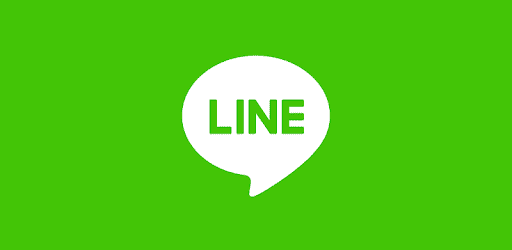
Line is a messaging app with more than half a billion registered users worldwide, and 217+ million monthly active users. Most of its users live in Thailand, Taiwan, Japan and Indonesia.
Like other social networks, you can send text, voice notes, videos and even make free voice and video calls to other uses from anywhere in the world.
What makes line stand out from other social networks is its huge collection of emoticons and stickers available in the Line Store. Line Creators Studio even allows users to create their own branded stickers to add to the collection. It also features an online avatar community and collection of gaming apps via Line Play, and supports payments with Line Pay.
4. kakao Talk
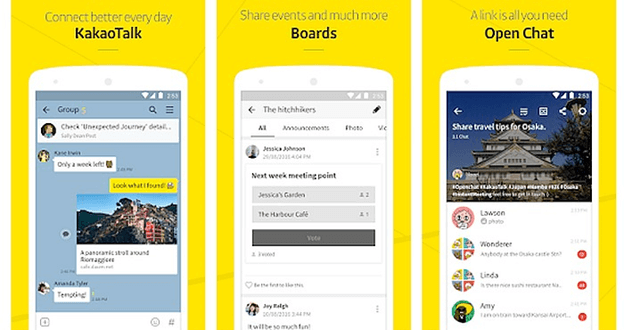
KakaoTalk is a Korean most popular chat app with more than 220 million registered users and 49 million active monthly users. It is so popular that South Korean telecommunication companies are reported to be worried about the future of texting. And the fact that it is available in 15 languages does not make things better for them either.
Users on the platform can send text messages, voice notes, video messages and more, all for free. The platform also features a wide variety of themes, stickers, emoticons, and alert sounds that allow each user a unique personalized look and feel when using the app.
Kakao Talk stands out from other messaging apps by allowing its users to create calendar events and bulletin boards for sharing announcements, play games via the app, shop, and even make payments thanks to the electronic wallet feature dubbed ‘KakaoPay’.
Businesses can also make branded channels that they can use to interact with their followers too.
5. QZone
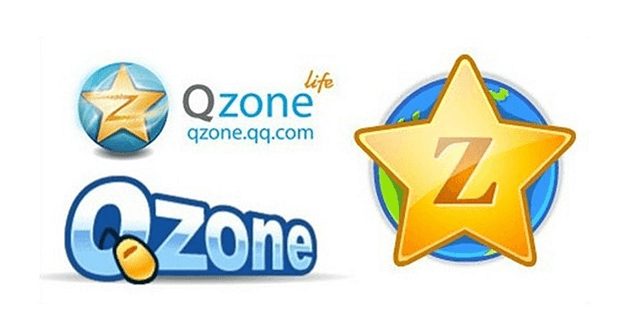
QZone is another popular Chinese social platform developed in 2005 by the creators of WeChat. Over the years, it has amassed over 600 million monthly active users, and become one of the top platforms in the country.
It offers its users a platform for writing blogs, sharing photos, finding music and videos, and even keeping a personal journal. Other features include the ability to customize the app’s look with themes and background music. Users can also go for paid accessories and profile updates for a more personalized look and feel.
Brands on QZone can run marketing campaigns on the app and other affiliated apps via Tencent Ad Solutions.
6. Viber

With more than 1 billion registered users from around the world and 260+ active monthly users, Viber is one of the most popular free voice and video calling platforms in Eastern Europe, Philippines, and Myanmar.
Viber cut out a niche for itself by introducing a new way for people to connect with larger groups via Viber Communities. In these communities, a user can create chat groups with unlimited users and share text, images, videos and other multimedia items.
The app has grown its revenue over the years by using advertisements, branded content, and chatbots (brands are charged to use the chatbots).
7. Taringa!
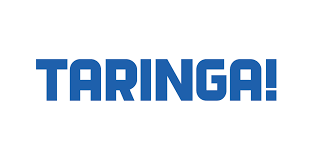
Taringa is a very popular online community in Spain and Latin America. It can be thought of as the Spanish alternative to Facebook, and it therefore follows that most of its users are mostly Spanish speakers.
It consists of more than 27 million registered users who use it to share news, recipes, DIY projects, and other content. Unlike other platforms, the most popular content on Taringa! gets a featured spot on the platform.
The platform also allows brands to advertise on the platform to reach more clients. This however, is a special process that requires brands to go through the platform’s support team to get set up.
8. Badoo
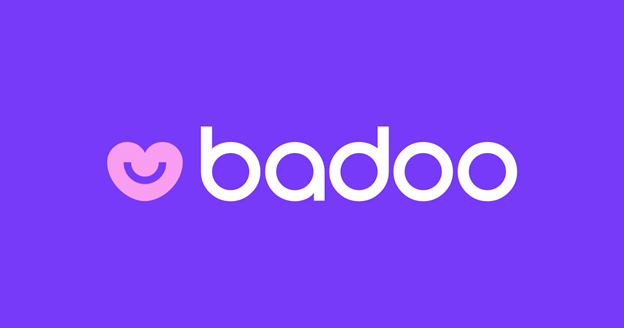
Badoo is a dating app designed to connect people through chat and live video streams, and it seems to be quite successful at it too if the close to half a billion registered users and 45 million active monthly users on the platform is anything to go by.
Signing up for an account on this location-based dating app is absolutely free, but you can get some additional features at a small monthly fee. Brands are not allowed to create profiles on the platforms – probably because it is more focused on helping people find love – but it allows businesses to show ads on their website or app. They can also show targeted ads in user dashboards or inbox.
Badoo users are from all over the globe, but it is most popular in France, Spain, Italy, Latin America and other countries with romance languages.
9. Skyrock
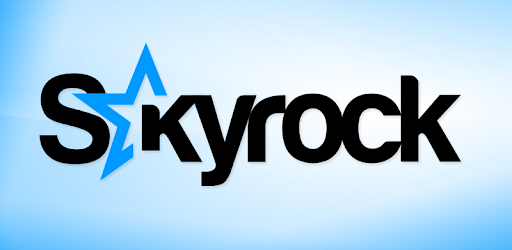
Skyrock is a social network popular with French speakers just like Taringa is popular with Spanish speakers. It enables users to manage blogs, catch up with friends in local chat rooms, and even get the latest art and culture news right in the platform.
The app is more focused on music, and is therefore just the perfect place for music artists to share their music with fans and also receive feedback. Brands can have accounts on Skyrock which they can use to advertise their content, or even publish it on their blogs.
10. Xing

Xing is a professional social network with more than 15 million registered users. it is based in Hamburg, and is mostly used by people in German and Europe to network and also recruit.
After logging into the platform, users can look for communities related to their professional field, search for job opportunities in their fields, read the latest industry news, learn of upcoming events, and even get development opportunities.
Since Xing is a professional network, businesses can have their own company profiles where they can publish content or advertise their products and services. This makes this platform more like the German version of LinkedIn.
Author
-
I'm a blogger. A really good one on social media topics 🙂
How to Embed a Video in PowerPoint
September 9, 2023
Meta Description: Want your PowerPoint Presentation to stand apart? Read on to understand why you should embed YouTube videos to your presentations and how you can do so.
0 Comments8 Minutes
5 Tips to Use Social Media Effectively to Increase Traffic on Affiliate Websites
September 3, 2023
Learn how to use social media with these five tips to grow the popularity of your affiliate website and market like never before.
0 Comments8 Minutes
How to Perfect Social Listening Skills for Increased Product Sales
June 19, 2023
According to Brandwatch, 96% of the people discussing brands online don’t follow their profiles, so marketers are likely to miss out on relevant posts. If brands are to create a strong online presence, let alone increase product sales, they need to engage followers more proactively.
0 Comments17 Minutes
Has Crypto Bottomed? Learn What Analysts Say Now!
StickyCrypto
February 22, 2023
Cryptocurrency is a digital asset used as a medium of exchange. Factors influencing its price include supply & demand, news events, speculation, technical & fundamental analysis. Is crypto at its bottom? Analyze charts & underlying economic factors to make informed decisions on whether now is a good time to invest.
0 Comments9 Minutes
Is Crypto the Future? Unlock the Possibilities of Tomorrow Today!
StickyCrypto
February 22, 2023
Cryptocurrency is a digital currency that offers high security, low fees and fast transactions. NAN is a type of cryptocurrency with advantages such as no fees, instant transaction speed and smart contracts support. Discover why crypto may be the future of finance!
0 Comments8 Minutes
What is Bayc NFT? Unlock the Possibilities of Non-Fungible Tokens!
StickyNFT
February 22, 2023
Experience secure & efficient trading of digital assets with Bayc NFT! Enjoy access to liquid markets, a wide range of digital assets, low fees & more. Get in touch with us for social media marketing services today!
0 Comments10 Minutes



















